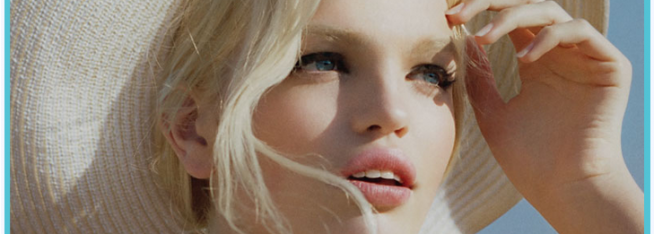Marketers Burberry and Ralph Lauren were the only two luxury brands to receive genius rankings in the inaugural L2 Think Tank Digital IQ Index: Fragrance, lauding the labels’ social media, commerce sites, mobile efforts and search marketing.
Following the two fashion powerhouses are Christian Dior at No. 5, Yves Saint Laurent and Chanel tied at No. 7 and Thierry Mugler at No. 10. Those that did not fare so well – Hermès, Dunhill Fragrances, Tom Ford Beauty and Lanvin Parfums – may have some trouble with visibility and attracting consumers.
“Overall, the fragrance industry is very weak online due to complicated licensee/licensor business models that create fragmented digital experiences, and the short shelf life of the products, which creates a tendency to make big investments in launches and then leave stale content sitting on microsites and static social media pages,” said Andrea Derricks, colead of the study at L2 Think Tank, New York.
“Genius and gifted brands are successfully integrating fragrances into their greater digital presence and view digital as an opportunity to sell, not just to raise awareness around a product launch,” she said.
The Fragrance IQ ranked 63 brands. They were rated 35 percent on digital marketing, 35 percent on social media, 20 percent on Web site and 10 percent on mobile.
Scent of success
Burberry was the top-ranking luxury brand at No. 2, beat out only by Victoria’s Secret.
The British fashion label was commended for its fragrance Web site. Consumers can easily search through the fragrances for an easy purchase.

Social media also played a huge role for Burberry fragrances, particularly its new fragrance Body.
The brand gave away over 47 million samples globally, earned over 500,000 Facebook likes before actual sales began and followed the sampling campaign up with end-to-end Facebook commerce. These digital efforts helped make Burberry Body the most successful fragrance launch ever, Ms. Derricks said.
Meanwhile, Burberry is excelling in search, banner ads and other digital marketing in both mobile and Web channels.

Ralph Lauren won major points and a No. 3 ranking with its Big Pony for Women launch.
Ralph Lauren released a quiz on its Facebook page in March to promote its new fragrance collection, The Big Pony Collection for Women.
Ralph Lauren quiz
Obviously hinging on the brand’s popular Big Pony collection for men, Ralph Lauren used a Facebook application containing The Life in Color Quiz that is linked from the brand’s Facebook page to show consumers which scent is right for them.
The results come with a personalized video based on the personality traits matched up with each fragrance.
By polling users on travel, party preference, style and music, each quiz result corresponds to one of four fragrances in The Big Pony Collection: Sporty, Sensual, Free-Spirited and Stylish (see story).
Ralph Lauren also provided engaging social experiences such as its March Madness Facebook contest, where users could submit guesses for the winner of the men’s NCAA basketball tournament. Also, 20 participants who were correct received a set of Big Pony fragrances, Ms. Derricks said.
Down the ranks
Other luxury marketers did well, including Dior, Chanel, Yves Saint Laurent, Thierry Mugler, Chloé, Giorgio Armani, Hugo Boss and Donna Karan.
Each brand has its own reasons for a high rank.
For example, Chloé likely got points for its lifestyle mobile app for its fragrance L’Eau de Chloé that included social media and a photo contest (see story).
Chloé app
Meanwhile, Dior surely received points for its comprehensive social media push that includes a Facebook application, four social videos and a Twitter hashtag campaign to push the upcoming “Addict to Love” film for its “Addict to Love” line (see story).

However, some brands are not faring so well in the digital IQ.
For example, Hermès, Dunhill Fragrances, Tom Ford Beauty and Lanvin Parfums were the lowest-ranking luxury brands in the study.
Their low digital IQ could be for a number of reasons. To receive a high ranking, brands must be competent across all of the criteria.
“Digital is causing a disruption in the fragrance industry, as weak performance by licensees is transferring stakeholder value to vertical brands,” Ms. Derricks said. “Brands that are winning in the space are moving away from a punch-and-move approach of creating separate microsites and social properties for every launch and then neglecting them shortly thereafter.
“Smart digital brands are starting to think about how to better integrate fragrances into the greater brand portfolio and create a more evergreen approach to social,” she said.
via Luxury Daily















